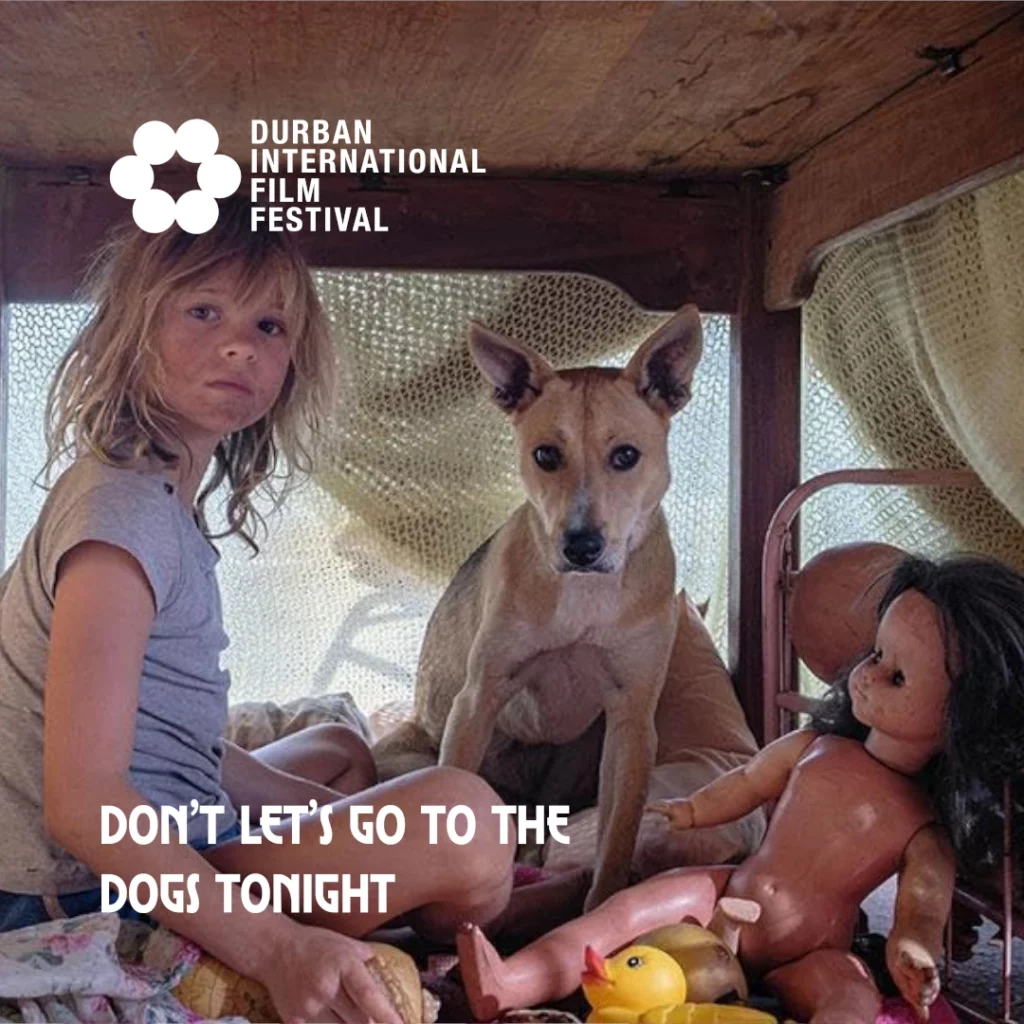There is something ghostly about Don’t Let’s Go to the Dogs Tonight. Not in the horror sense, but in the way memory clings to silence and place. From its opening scenes, the film presents the landscape of Zimbabwe-Rhodesia in 1980 as haunted, by war, by loss, and by a childhood slowly eroding under the weight of political upheaval. Based on Alexandra Fuller’s celebrated memoir, the film is brought to life by first-time director Embeth Davidtz, who also co-writes the screenplay.
Her touch is delicate. Instead of spectacle or dramatics, she opts for mood-whispers in the dark, the hum of a radio in the background, the creak of farm wood, and an atmosphere where the personal is quietly political. This is a film about a family in the wrong place at the wrong time, and about a girl called Bobo, who is too young to understand it all, but old enough to feel every rupture in her world.
The film is told through the eyes of 8 year old Bobo, portrayed with astonishing subtlety by newcomer Lexi Venter, the story chronicles a white farming family’s life during the uncertain, volatile transition at the end of the Zimbabwean War for Independence. There are echoes of privilege, confusion, and displacement, yet the film resists judgment. Instead, it captures childhood as it is: fragmented, skewed, and emotionally complex. Bobo’s voiceover narration is almost airy, whisper-like which eerily mismatches with the tough, stubborn girl we’re introduced to. It’s a brilliant choice. Her inner world and outer shell are clearly divided, and Davidtz handles this with restraint, never overstating the trauma, yet making it ever-present and evident.
The title Don’t Let’s Go to the Dogs Tonight itself feels like a warning about the dangers lurking in the rural landscape post-war and the decay of a world order that the family refuses to let go of. They are, in many ways, fighting ghosts. Not just the literal ones of war and lost siblings, but the ghosts of empire, belonging, and a home that perhaps never existed in the way they imagined.
The ensemble cast is solid. Director Davidtz herself plays Bobo’s emotionally unstable mother with an aching, fraying intensity. She plays the roll like a woman perpetually on the verge of unraveling, held together only by cigarettes, silence, and mourning. Zikhona Bali brings quiet power as a domestic worker navigating the racial dynamics with resilience, while Fumani Shilubana, Rob Van Vuuren, and Anina Reed deliver textured performances that elevate the family’s dysfunction from cliché to emotionally specific terrain.
While there are strong performances and sharp writing, it’s really the landscape and atmosphere that anchor the film. Back to the opening scene with a buttery smooth pan into the residence of Bobo’s family, shots of the sun setting over dry farmland, the sound of insects at dusk and the near-constant tension in the air, all these act as backdrops against the world of the film.
As a directorial debut, Davidtz shows great promise. Having previously starred in Junebug and worked with Sony Pictures Classics, she brings an actor’s understanding of emotional nuance, allowing scenes to breathe rather than rush. There’s a literary sensitivity to her framing where moments linger, words are sparse, and silences are loaded.
That said, some audiences may find the pacing slow or too subtle, especially if they come expecting a traditional war drama. But this isn’t a film about battles or revolutions; it’s about aftermath. About how children carry the unspoken, how parents transmit fear, and how homes can feel like both sanctuaries and prisons.
As part of Durban International Film Festival 2025, Don’t Let’s Go to the Dogs Tonight finds a fitting platform. DIFF has long been a space that welcomes nuanced, introspective cinema, particularly work that grapples with South(ern) Africa’s layered histories. The film’s presence here is not just timely, but necessary. At a time when many South African and Zimbabwean stories are finally being reclaimed and told through new lenses, Davidtz’s film offers a fresh, if complicated, vantage point which is the view from a child of settlers, caught between innocence and inheritance.
In the end, the film doesn’t try to excuse or romanticize the actions of its character. It serves as a remembrance and in doing so, it allows us, as viewers, to reckon with how memory is shaped not just by what happened, but by how it felt. What lingers long after the dust settles isn’t always the violence, but the silence that follows it.
Don’t Let’s Go to the Dogs Tonight is part of the official selection at the 46th Durban International Film Festival, screening from 17–27 July 2025, with additional outreach screenings in Cape Town and Johannesburg to follow. For details on screening times and venues, visit ccadiff.ukzn.ac.za.
Catch the film at DIFF: https://ccadiff.ukzn.ac.za/diff46/dont-lets-go-to-the-dogs-tonight/
Screening Schedule:
19 Jul 19:00 Suncoast 6
27 Jul 19:00 Pavilion 12
2 Aug 19:30 The Bioscope
2 Aug 19:30 The Labia
This review emanates from the Talent Press programme, an initiative of Talents Durban in collaboration with the Durban FilmMart Institute and FIPRESCI. The opinions expressed in this article are those of the author (Alice Johnson) and cannot be considered as constituting an official position of the organisers.

